Luke Eisenberg
Getting Reliable Annotations for Sarcasm in Online Dialogues
Sep 04, 2017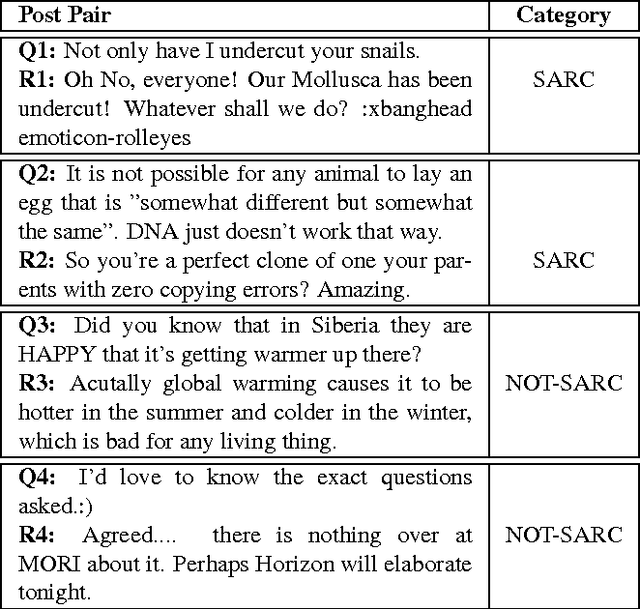

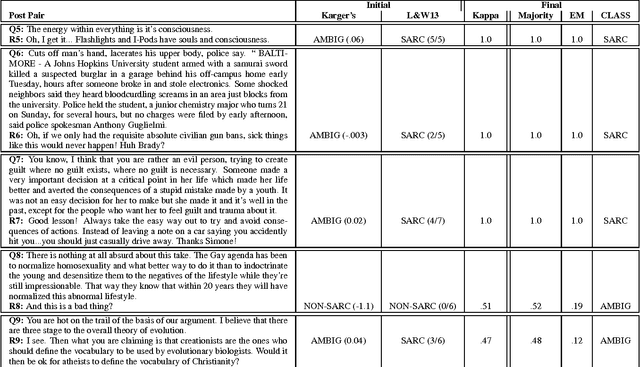
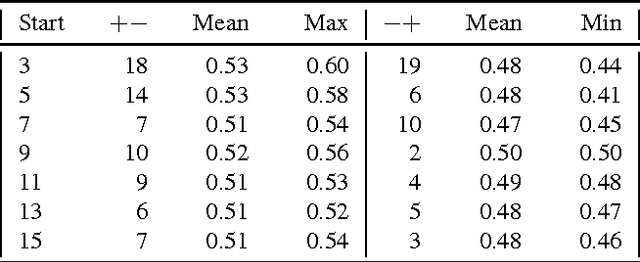
Abstract:The language used in online forums differs in many ways from that of traditional language resources such as news. One difference is the use and frequency of nonliteral, subjective dialogue acts such as sarcasm. Whether the aim is to develop a theory of sarcasm in dialogue, or engineer automatic methods for reliably detecting sarcasm, a major challenge is simply the difficulty of getting enough reliably labelled examples. In this paper we describe our work on methods for achieving highly reliable sarcasm annotations from untrained annotators on Mechanical Turk. We explore the use of a number of common statistical reliability measures, such as Kappa, Karger's, Majority Class, and EM. We show that more sophisticated measures do not appear to yield better results for our data than simple measures such as assuming that the correct label is the one that a majority of Turkers apply.
Identifying Subjective and Figurative Language in Online Dialogue
Aug 29, 2017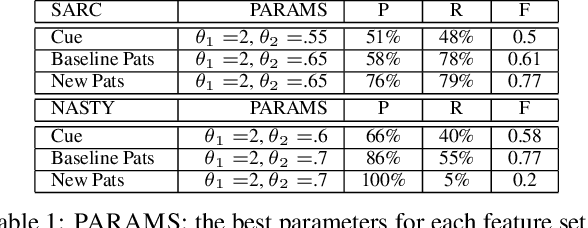
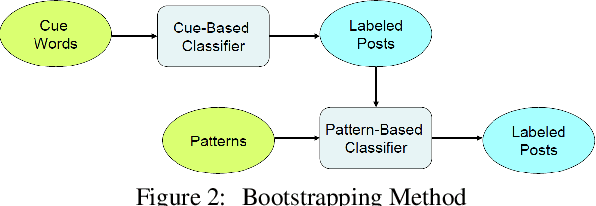
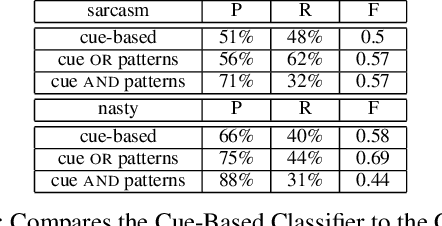
Abstract:More and more of the information on the web is dialogic, from Facebook newsfeeds, to forum conversations, to comment threads on news articles. In contrast to traditional, monologic resources such as news, highly social dialogue is very frequent in social media. We aim to automatically identify sarcastic and nasty utterances in unannotated online dialogue, extending a bootstrapping method previously applied to the classification of monologic subjective sentences in Riloff and Weibe 2003. We have adapted the method to fit the sarcastic and nasty dialogic domain. Our method is as follows: 1) Explore methods for identifying sarcastic and nasty cue words and phrases in dialogues; 2) Use the learned cues to train a sarcastic (nasty) Cue-Based Classifier; 3) Learn general syntactic extraction patterns from the sarcastic (nasty) utterances and define fine-tuned sarcastic patterns to create a Pattern-Based Classifier; 4) Combine both Cue-Based and fine-tuned Pattern-Based Classifiers to maximize precision at the expense of recall and test on unannotated utterances.
 Add to Chrome
Add to Chrome Add to Firefox
Add to Firefox Add to Edge
Add to Edge